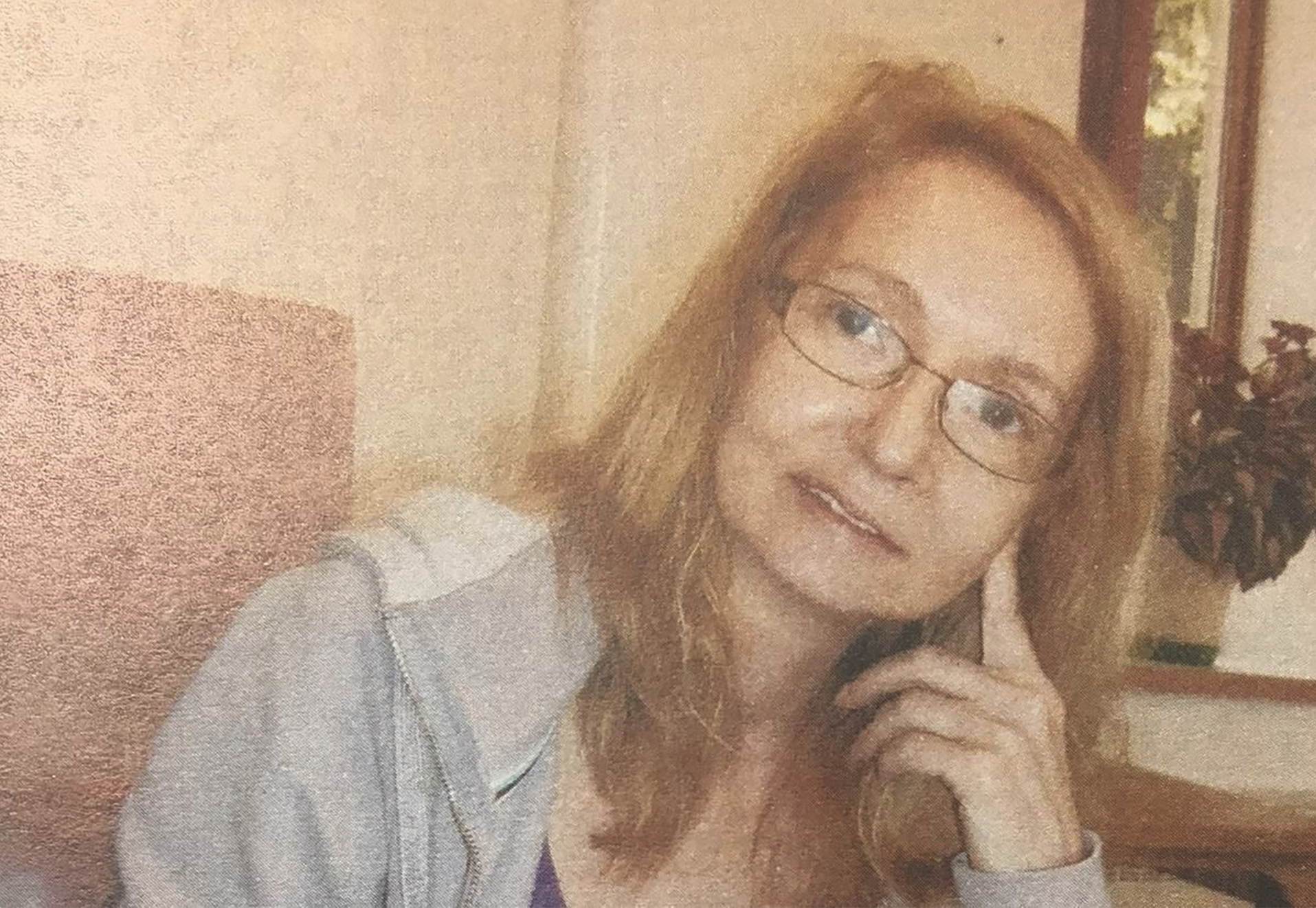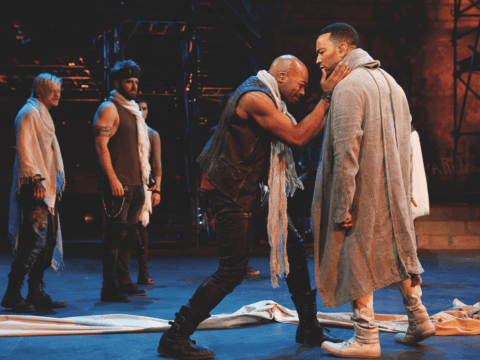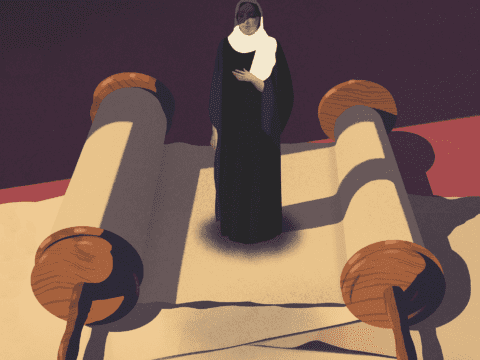The first day of March has double significance for me as a survivor of open-heart surgery and a disabled senior.
On March 1, 2018, a surgeon stopped, repaired and restarted my heart. I began a six-month recovery at the loving hands of my daughter, who left her job to be my full-time caregiver. For me, it’s a triumphant anniversary of a successful operation.
You may unsubscribe from any of our newsletters at any time.
But March 1 is also the Disability Day of Mourning, a day of despair that I observe with the disabled community, when we recommit ourselves to the sadly necessary task of defending our lives. The date commemorates the murder of 22-year-old George Hodgins, an autistic man who lived in California and was killed by his caretaker mother in 2012. (After shooting her son, Hodgins’ mother shot herself.)
I’m sure we all sympathize with family caretakers who devote themselves night and day to the needs of a loved one. Were there times my daughter lost patience and felt exhausted, alone, frightened, trapped or angry? Absolutely. When private caregiver relief is too expensive, and when government relief is minimal or non-existent, family caretakers have every right to protest the ebbing loss of their own lives as they care for their loved ones.
But there must be a firm line drawn where our sympathy ends. Nothing gives anyone the right to harm an elderly, ill or disabled person, no matter how frustrating care work can be and no matter how much discomfort the ill or disabled person may be experiencing. And we must never sympathize with a family member who takes a disabled loved one’s life.
More on Broadview: Book argues the need for new stories about disability
Unfortunately, this kind of murder happens all the time — once a week in the United States alone, according to the Ruderman Foundation. Canadian numbers are not as easy to come by, but the Disability Day of Mourning website commemorates 36 Canadian victims.
On March 1, memorials are held for victims of filicide all around the world. Legally speaking, filicide is the murder of a child by a parent. In the disability community, the word has a wider meaning. “When we say ‘filicide,’” the Disability Day of Mourning website explains, “we are talking about a pattern of violence that starts when a parent or caregiver murders their child or adult relative with a disability.” That pattern of violence continues, the website states, “in how these murders are reported, discussed, justified, excused, and replicated.”
Canada’s most famous case of filicide has been excused and justified for decades. In October 1993, Robert Latimer murdered his 12-year-old disabled daughter, Tracy, and claimed it was an act of love. Latimer received a life sentence in 2001. He served seven years, then won parole. In 2018, still insisting he’d done nothing wrong, he applied for a full pardon.
As Latimer applied for his pardon, the Globe and Mail ran opinion pieces with opposing takes on his case, one of which calmly argued why Latimer deserved exoneration. Running these columns framed the issue of child murder as one where there are two equally reasonable sides. But it’s only a debate if disabled people are considered burdens, if we aren’t seen as fully human.
Even as I wrote this article in the last days of 2019, my social media feeds were full of abled friends and family sympathizing with a New York Times article that called a husband shooting his disabled 80-year-old wife in the throat “a love story.”
Filicide is never love; it’s hate. If little girls like Tracy are what the Nazis called “life undeserving of life,” if disabled senior women like me are broken animals that “caring” men can freely put down, that’s not only murder; it’s eugenics. On March 1, we must all mourn our murdered, demand our equal humanity and challenge the discourses that legitimize violence against disabled people.
This column first appeared in Broadview’s April 2020 issue with the title “No mercy for ‘mercy killings.’”
Broadview is an award-winning progressive Christian magazine, featuring stories about spirituality, justice and ethical living. For more of our content, subscribe to the magazine today.















Yet it remains clear that other articles in Broadview seem to support MAID. – October 2019, June 2016, December 2017 issues.
Where do we draw the line? Who makes the choice, when one cannot make it for themselves? Unfortunately, we have dug a pit for ourselves, and others will lie in it unwillingly.
“Show no mercy…” The matter is not so simple. I am one who sympathized with Robert Latimer. I flippantly use the expression that when an animal is in pain or seriously injured we show “mercy” by euthanizing it. Not so with humans. I, too, have undergone open heart surgery and can say absolutely that when I was given the anesthetic there was nothing. Nothing! no sensation, no thought, no consciousness or time…nothing! I don’t fear death. And so I have made a written request that if I am in pain and helpless and am a burden on my family and have no hope of recovery I would hope that someone would gently put me out of my misery. Many people are unable to make that request and must endure pain, discomfort, misery of all sorts for years. Death is a part of life. It happens to us all. Often times it looks messy but for the deceased, the pain is over. I’m not advocating murder but mercy in a no-win situation. I believe what Robert did was an act of love in not wanting to see his daughter suffer anymore. There are no absolute lines here. And, as a spiritual person I have to ask where God is in our suffering? Conveniently absent it seems.
Funny, every time I read: “Where is God during suffering?” they’re asking God.
God allows suffering for our benefit, much like a tetanus shot after we cut ourselves on a rusty nail.
There are absolute lines here – there is a big difference between animals and humans. (See Genesis 1-2 and Genesis 9:5-6)
Mercy killing is allow us to become God, and we are in no position to be like Him
If you choose to adhere to someone else’s theology….the way in which they thought about the power of the universe that we call “god” you could be right. I, however, living in a time of science and able to think critically, knowing that God lives within me, am able to consider factors such as the pain and agony a seriously disabled person would go through, often for years and years, plus the agony of their loved ones watching them suffer. We as humans think nothing of sending brainwashed, trained, young people to war to kill and maim others in the name of politics yet we won’t show mercy by ending someone’s suffering by easing them out of it through a process that will eventually happen. God acts through us in our mercy. Do we choose to allow a loved one to suffer painfully, physically and emotionally or do we prayerfully and lovingly realize that death is a part of life and, if we believe in an afterlife, is it not better for our loved one to enter there and be whole in spirit rather than be bound by misery until they mercifully die from their affliction? Don’t quote scripture to me. Scripture is someone else’s idea of God. Scripture is someone else’s ancient and unscientific idea of that which can’t be explained. We have to think about these things. That’s why we have a brain. The Bible is an interesting set of ancient writings but I’ve come to understand that these books were written by those who were trying to make sense of their world. I don’t agree with mercy killing in most instances but in some, such as the Latimer case, it was the loving thing to do.
God is not a power or a force, He is a Being. Christianity is the only religion that has a personal relationship with God. You have definitely had a bad experience with God and now you are trying to disprove Him. Good luck.
You are taking a moral position here, in the light of whatever religious dogma you follow. You dismiss the pain of children and the suffering of the elderly as irrelevant, when in fact it is central. Shame on you for putting the doctrines of religion ahead of the suffering of people.
Surprised that someone would take a moral position to murder? Also, our suffering may be a part of us, but it is not, and never will be, central. Our souls are what is central to us, with God as our centre in all things.
I wonder how many of the comments here come from people living with severe disabilities? I can’t count how many able-bodied folk have told me the very same arguments being used here in the comments section. Pattern: Disabled person (such as the article’s author, for instance) insists that our lives are worth living, yet unfairly devalued by able-bodied society, then said able-bodied society quite literally tell us all the reasons why they believe our lives SHOULD be devalued, and are not worth living! Or those same people just decide that we’re not disabled enough to understand, that’s before I tell them that my diagnosis carries a (statistical) quality of life that’s worse the people undergoing chemotherapy for cancer, and that I’m bedridden, by times needing to take nutrition in via a baby bottle.
It’s our lives after all, and WE DO WANT TO LIVE THEM!